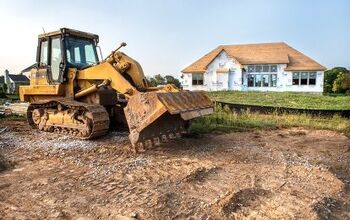What Is The Cost Of Living In Asheville, North Carolina?

Asheville is a small “big” city with a little over 91,000 residents. It is the 12th largest city in North Carolina and the biggest city in Western North Carolina.
Asheville is only slightly more expensive than the US average of 100 on the cost of living index at 106. Asheville’s median home value is $344,000, with average rent between $1,200 and $1,400. The costs of groceries are also higher than the US average.
Consider the costs for taxes, utilities, groceries, transportation, and activities in Asheville below. By looking at these factors, you can determine if moving to Asheville, North Carolina, is beneficial for you.
Do You Need to Hire Movers?
Get free, zero-commitment quotes from pro contractors near you.

Housing Costs in Asheville, North Carolina
Housing prices in Asheville are higher than both the North Carolina and US averages at about $344,000. In North Carolina, the median home value is around $175,000, putting Asheville homes about $150,000 more than that. Furthermore, Asheville’s median home value is almost $50,000 more than that of the US.
Asheville homes have appreciated about 150% over the last 20 years. Every year since 2000, the average rate of appreciation was 4.5%. This puts Asheville’s appreciation rate on the higher end of the 3-5% national average.
Median Home Prices in Asheville, North Carolina | |
| Home Price | Percentage of Homes |
| > $1,280,000 | 2.1% |
| $909,001 – $1,280,000 | 2.9% |
| $640,001 – $960,000 | 9.3% |
| $512,001 – $640,000 | 7.9% |
| $384,001 – $512,000 | 16.1% |
| $256,001 – $384,000 | 25.7% |
| $128,001 – $256,000 | 28.3% |
| $64,001 – $128,000 | 4.3% |
| $0 – $64,000 | 3.4% |
Rental Costs in Asheville, North Carolina
About 52% of Asheville homes are rentals which is 4% more than owned homes.
On average, you’ll spend between $1,200 and $1,400 on rent in Asheville. Overall, the average rent for a 982 square foot apartment in Asheville, North Carolina is $1,512 per month. Though, the price can vary depending on factors like location, square footage, and quality.
Rent in Asheville is on par with the national average rent, which is around $1,400/month.
Average Rental Cost by Bedroom Size in North Carolina | ||||
| Housing Size | Asheville | Asheville Metro | North Carolina | United States |
| Studio | $866 | $794 | $697 | $821 |
| One-Bedroom | $877 | $799 | $731 | $930 |
| Two-Bedroom | $1,081 | $993 | $875 | $1,148 |
| Three-Bedroom | $1,477 | $1,356 | $1,172 | $1,537 |
| Four-Bedroom | $1,900 | $1,744 | $1,430 | $1,791 |
Average Asheville Rent by Neighborhood
| Neighborhood | Average Monthly Rent |
| Devonshire | $1,606 |
| Witchwood Acres | $1,568 |
| Redwood Forest | $1,542 |
| West Asheville Estates | $1,477 |
| Greenwood Fields | $1,382 |
| Dogwood Grove | $1,311 |
For renters in Asheville, the most affordable neighborhoods are Azalea, Beverly Hills, and Bobcat Field. Whereas, the most expensive Asheville neighborhoods are Woodfield, Woods Edge, and Wyntree.
Average Rent in Asheville Compared to Other Cities
There are cities in North Carolina that rank among the cheapest cities to rent in the country (Greensboro, most notably) and the state has only the 29th highest rent in the nation, of 56 states and territories. Though, rent can vary quite a bit based on where you live in the state.
To put things in perspective, the table below outlines how the average rent in Asheville compares to other cities in the state of North Carolina:
| City | Average Monthly Rent |
| Charlotte | $1,522 |
| Raleigh | $1,510 |
| Asheville | $1,512 |
| Greensboro | $1,116 |
| Winston – Salem | $1,083 |
| Durham | $1,432 |
Taxes in Asheville, North Carolina
Taxpayers in Asheville enjoy a flat state income tax, an average effective property tax rate that is below the nationwide average, and a relatively reasonable sales tax rate.
Sales Taxes in Asheville, North Carolina
The base sales tax rate in North Carolina is 4.75%. Though, every county in the state levies an additional sales tax ranging from 2% to 2.50%. In Buncombe County (where Asheville is located), the county sales tax rate is 2.25%. This means that the total sales tax in Asheville is 7%, which is only slightly lower than the national average.
This rate applies to most products in the state in addition to some services, like the repair of personal property (including vehicles), admissions to entertainment events, laundry services, and more. Most food is subjected to a lower tax rate of just 2%.
Income Taxes in Asheville, North Carolina
As of 2014, North Carolina has a flat income tax rate of 5.25%. This rate applies to all taxable income, regardless of traditional income brackets. The average median household income in Asheville is $47,800. Due to North Carolina’s flat-rate income tax, you’d pay about $2,500 in income taxes annually.
Property Taxes in Asheville, North Carolina
North Carolina’s homeowners pay property taxes at an effective rate equivalent to a percentage of their home’s value. In North Carolina, the average homeowner will pay around $1,500 annually. This puts most property taxes in North Carolina at less than 1% of home value.
In Buncombe County, the average effective property tax rate is 0.69%. With a median home value of $222,300, this means that Asheville residents pay a median annual property tax payment of $1,530.
Utility Costs in Asheville, North Carolina
Even though Asheville’s housing is slightly more expensive than the national average, its average utility costs are lower. Asheville falls at 96.7 on the cost of living index, with North Carolina at 99.2 and the US at 100. The cost of living index utility rating factors in electricity, natural gas, and other fuels.
In North Carolina, the average electric bill is about $117, which is $10 more than the national average. In Asheville, the average annual water bill was $429 in 2015, making the bill $35/month. This is on the pricier side for major cities in North Carolina.
The typical utility bill for a 915 square foot apartment in Asheville will be around $180/month. The price will vary depending on how much water and electricity you consume. Wifi costs will differ from provider to provider but tend to fall around $62/month.
Food & Grocery Costs in Asheville, North Carolina
Groceries in Asheville cost more than the North Carolina and US averages. According to the cost of living index, Asheville is 103.1, North Carolina is 96.5, and the U.S. is 100.
It’s recommended that your food budget makes up no more than 11% of your annual income. This translates to 6% should go to groceries and the remaining 5% to dining out. Asheville’s median income is about $48,000, putting your food budget at $5,280/year.
Compare the cost of groceries in Asheville to other major US cities in the table below. Groceries in Asheville are expensive compared to the rest of North Carolina but cheaper than some other major US cities.
Comparison of Grocery Costs in Asheville to Other Major US Cities | |||||
| Grocery | Asheville | New York | Philadelphia | Atlanta | San Francisco |
| Milk (1 gallon) | $3.80 | $4.43 | $4.20 | $3.12 | $4.56 |
| Bread (1 loaf) | $2.45 | $3.39 | $2.70 | $2.49 | $3.24 |
| Rice (1 pound) | $1.75 | $2.73 | $1.78 | $1.84 | $2.49 |
| Chicken (1 pound) | $5.71 | $6.40 | $3.99 | $4.77 | $6.00 |
| Bananas (1 pound) | $.87 | $1.37 | $0.79 | $1.43 | $0.85 |
| Lettuce (1 head) | $2.17 | $2.16 | $1.79 | $1.57 | $1.74 |
| Eggs (1 dozen) | $2.67 | $3.42 | $2.70 | $2.45 | $3.62 |
Transportation Costs in Asheville, North Carolina
Asheville’s transportation is slightly cheaper than North Carolina’s transportation costs. According to the cost of living index, Asheville is 82.8, North Carolina is 83.9, and the U.S. is 100.
Nearly 75% of all workers who commute to work in Asheville drive by themselves. Around 7.5% carpool to work, and 11% work from home and don’t have to commute at all. Asheville’s public transit options are relatively limited. There is a bus system throughout the city.
Asheville is moderately bike-friendly. Some areas in Downtown Asheville don’t have any bike lanes, though Riverside Drive is a district good for a ride. There are many trails available, though the area is hilly and can be difficult for inexperienced bikers.
Comparison of Transportation Costs in Asheville to Other Major US Cities | |||||
| Transportation | Asheville | New York | Philadelphia | Atlanta | San Francisco |
| Gas (1 gallon) | $2.40 | $2.87 | $2.74 | $2.54 | $3.25 |
| Bus Ticket (Single Trip) | $1.00 | $2.75 | $2.50 | $2.50 | $3.00 |
| Taxi (1 mile) | $4.75 | $3.00 | $5.00 | $3.50 | $3.89 |
Public Transportation Costs in Asheville
It costs $1 for a single-ride ticket in Asheville. A month pass is $20, and an annual pass is $220. Students, seniors over 65, and those with disabilities are eligible for a discounted fare.
Driving Costs in Asheville
If you work in Asheville, chances are you’ll commute by car. Gas is just .02 cents more in Asheville than the national average. Therefore, it won’t cost you much more to fill up your tank in Asheville compared to most of the US.
The average commute time in Asheville is on the short side at only about 16 minutes. This is almost 10 minutes less than the average US worker’s commute. Only 1.3% of people working in Asheville have a super commute of 90 or more minutes.
Asheville offers relatively inexpensive average annual car insurance costs at $819 yearly. This is about $40 cheaper than the average yearly cost in North Carolina of around $860. Asheville’s average annual car insurance costs are about $600 less expensive than the national average of $1,424.
What you pay for insurance varies depending on vehicle make and model, your age, neighborhood, and the company. NC Farm Bureau, Auto-Owners, and Travelers offer the cheapest insurance in North Carolina.
You can find the average car insurance costs in North Carolina in the table below. Teenagers have the most expensive annual insurance costs. Individuals in their 50s will pay the lowest annual rates, but most drivers will pay less than $1,000.
Average Car Insurance Costs in North Carolina By Age | |
| Age | Average Yearly Cost |
| Teens | $2,650 – $925 |
| 20s | $875.07 |
| 30s | $858.96 |
| 40s | $849.97 |
| 50s | $842.29 |
| 60s | $857.75 |
| 70s | $895.77 |
Activity Costs in Asheville, North Carolina
Asheville is known for some of its beautiful nature scenes that you can enjoy at no cost. You can also find street performers throughout the downtown area or enjoy a weekly drum circle in Pritchard Park. The Folk Arts Center features Appalachian art, and the River Arts District features artists at work in studios.
Two tickets to the movie theater will cost about $24. A domestic beer will cost you $3.84 and an imported one $4.25 at a local bar.
A local gym membership will cost you around $42 per month. A local tennis court will only cost you $22 to rent for an hour.
If you decide to vacation in Asheville, expect to spend about $106/ day on food and sightseeing. A one-week vacation in Asheville for one person will cost about $745. The average hotel in Asheville will cost about $140/night.
Related Questions
Is Asheville, North Carolina safe?
Asheville has both a higher violent and property crime rate than the rest of the US. The annual number of violent crimes in Asheville is about 700, and there are about 6,000 property crimes. You have a 1/134 chance of becoming a victim of violent crime in Asheville and a 1/16 of property crime.
What is the weather like in Asheville, North Carolina?
Asheville’s temperature ranges from 25 degrees in the winter to 84 in the summer. It experiences around 44 inches of rain and 10 inches of snow each year. The city experiences about 212 sunny days each year.
Do You Need to Hire Movers?
Get free, zero-commitment quotes from pro contractors near you.

Is it Expensive to Live in Asheville, North Carolina?
Although Asheville’s homes are slightly pricier than the national average, the city offers cheaper utilities and transportation costs than the US average. Homes in Asheville have appreciated well over the years.
While Asheville may be considered slightly more expensive when compared to other U.S. cities, it is surrounded by beautiful forests and has a vibrant arts district. Be sure to weigh the costs and benefits of Asheville before making any significant moves.
Related Articles

Stacy Randall is a wife, mother, and freelance writer from NOLA that has always had a love for DIY projects, home organization, and making spaces beautiful. Together with her husband, she has been spending the last several years lovingly renovating her grandparent's former home, making it their own and learning a lot about life along the way.
More by Stacy Randall










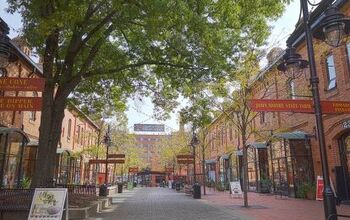


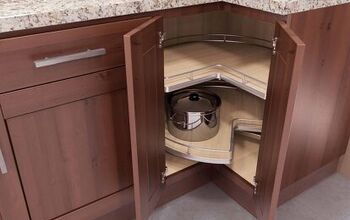



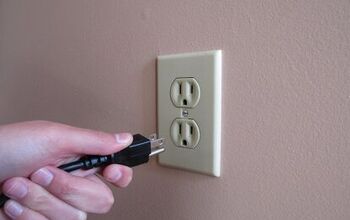




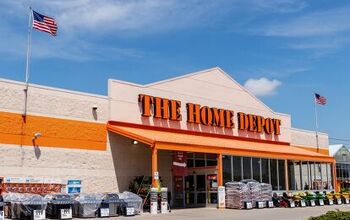
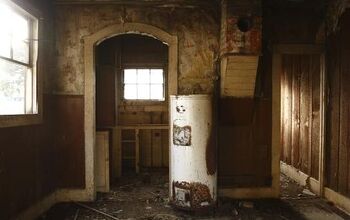
![How To Reset A Whirlpool Cabrio Washer [In 5 Easy Steps!]](https://cdn-fastly.upgradedhome.com/media/2023/07/31/9076531/how-to-reset-a-whirlpool-cabrio-washer-in-5-easy-steps.jpg?size=350x220)
